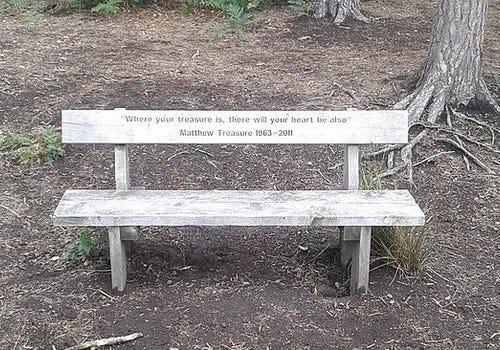Today is the feast of St Paulinus of Nola. His story is simple. Born in Bordeaux, France in 353, he became a Roman consul and amassed great wealth. When he realised that his wealth was getting in the way of his relationship with Christ, he gave it all away and moved with his wife to Nola, a small town near Naples. The townspeople were so impressed with him that they made him their bishop. He spent 22 years as their leader and took care of the poor and protected the people during the time of the decline of the Roman Empire and the attacks of the Germanic tribes. The Gospel reading for the memorial Mass on his feast day might well have been
Jesus said to his disciples, “Don’t fear, little flock, because your Father wants to give you the kingdom. Sell your possessions and give to the poor. Get for yourselves purses that will not wear out, the treasure in heaven that never runs out, where thieves can’t steal and moths can’t destroy. Your heart will be where your treasure is” (Luke 12:32-34 – New Century Version).
If Jesus came today and spoke in a similar way to us, he might be referring to the consumerist orientation of our society. Pope Francis offers us this reflection:
‘… “as society becomes ever more globalized, it makes us neighbours, but does not make us brothers” (Caritas in Veritate, #19). We are more alone than ever in an increasingly massified world that promotes individual interests and weakens the communitarian dimension of life. Indeed, there are markets where individuals become mere consumers or bystanders. As a rule, the advance of this kind of globalism strengthens the identity of the more powerful, who can protect themselves, but it tends to diminish the identity of the weaker and poorer regions, making them more vulnerable and dependent’ (Fratelli Tutti, #12).
Pope Francis does have a vision to share with us:
‘We are speaking of an attitude of the heart, one which approaches life with serene attentiveness, which is capable of being fully present to someone without thinking of what comes next, which accepts each moment as a gift from God to be lived to the full. Jesus taught us this attitude when he invited us to contemplate the lilies of the field and the birds of the air, or when seeing the rich young man and knowing his restlessness, “he looked at him with love” (Mk 10:21). He was completely present to everyone and to everything, and in this way he showed us the way to overcome that unhealthy anxiety which makes us superficial, aggressive and compulsive consumers’ {Laudato Si’, #226}.
SEE
Examine the context of the Gospel story to find out why Jesus’ disciples would be afraid. Is their fear the result of conflict? Or lack of faith? Or the struggle to survive?
What is the ‘treasure in heaven’ that Jesus speaks about? And what do they have to do to gain the ‘treasure’? How is this to be interpreted in our world? Is it counter-cultural?
What does Jesus mean when he says ‘… your Father wants to give you the kingdom’? When has he said that to you? How have you responded?
JUDGE
Recall a time when you chose to let go of possessions and went without something so that others might benefit from your generosity.
What does Jesus teach about the consumerist character of our society? What does your faith tell you about the place of possessions in your life?
Ideally, what should be happening in people’s lives in our consumer-oriented society?
ACT
What is there about consumer-oriented society that you want to change? How will you be affected by the change you seek?
What action can you take over the next week to bring about the change you want to make in your own life and in society?
Who can you involve in your action and how can they help to bring about the change you desire?
Author: Pat Branson
Image source:
Open Benches project / Wikipedia / Creative Commons Attribution-Share Alike 4.0 International
Read more …
Shalom Pillay, Why Australians are caught up in consumerism McCrindle
Pope Francis, Laudato Si’ (2015)
Pope Francis, Fratelli Tutti (2020)



